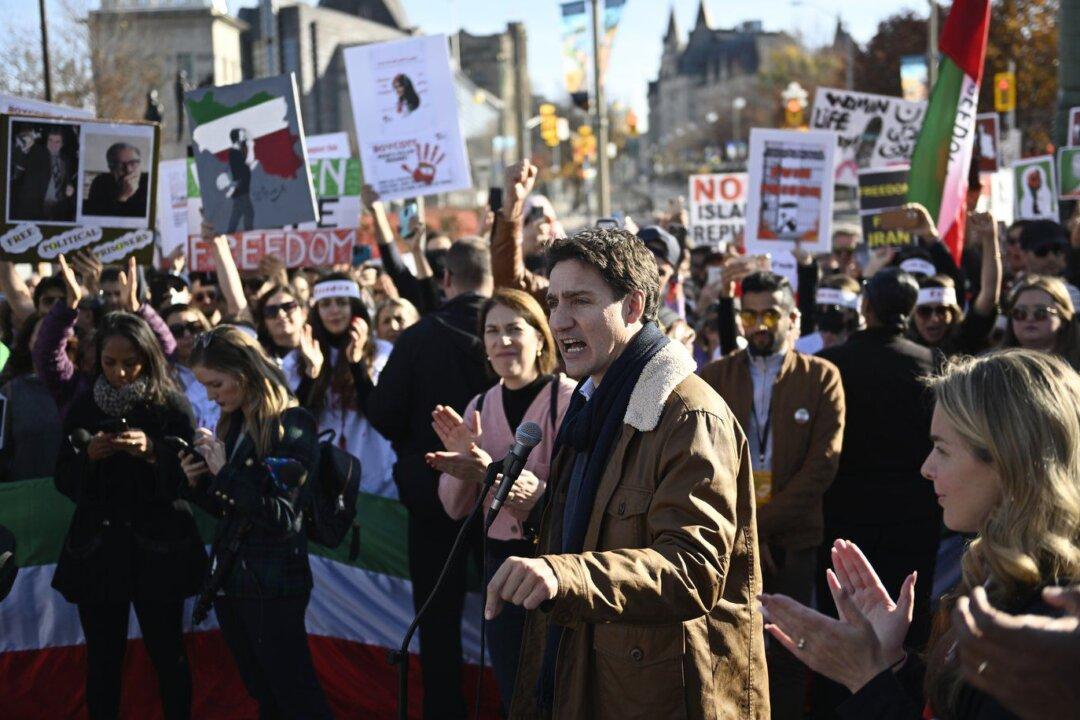Prime Minister Justin Trudeau stood with the families of the victims of Ukraine International Airlines Flight 752 on Saturday as they lent their voices to the worldwide calls for revolution in Iran through a series of coordinated protests across Canada.
But even as Trudeau touted Canada’s new sanctions against the Iranian regime, some activists called on the federal government needs to go further to show it will no longer tolerate the country’s human-rights abuses.





